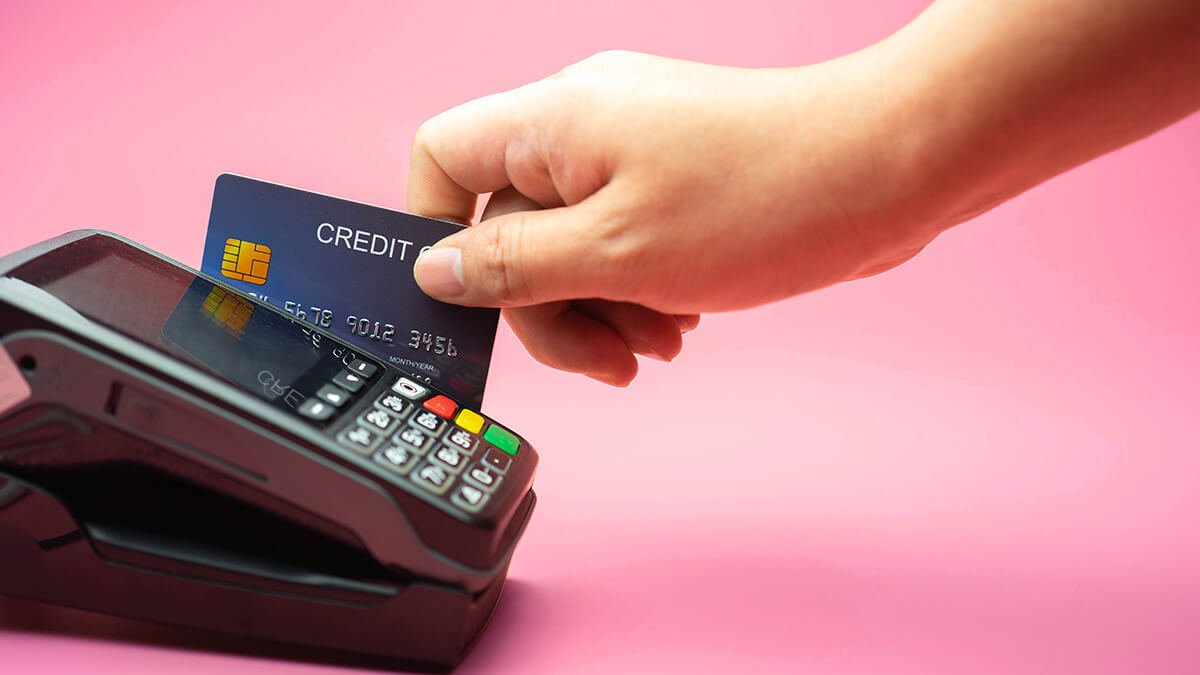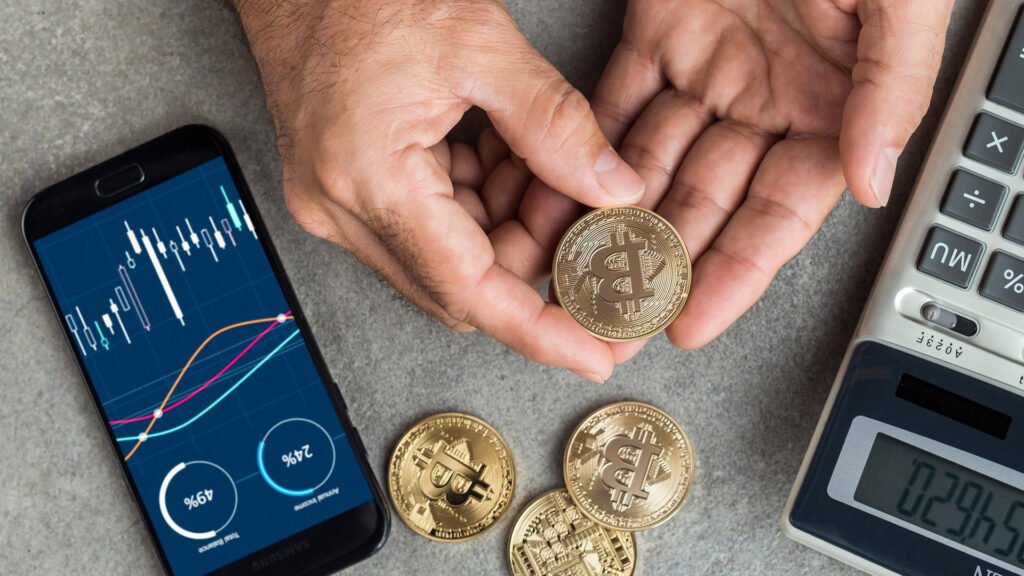Are you looking to learn how to buy bitcoin with credit card quickly and safely? You’re not alone. Millions of cryptocurrency newcomers choose credit cards as their preferred payment method because of the instant processing and convenience they offer. Unlike bank transfers that can take days, purchasing bitcoin with a credit card allows you to enter the crypto market within minutes. However, navigating the world of cryptocurrency exchanges and understanding fees, security measures, and verification processes can feel overwhelming for beginners. This comprehensive guide will walk you through everything you need to know about buying bitcoin using your credit card, from choosing the right platform to securing your digital assets after purchase.
Why People Choose Credit Cards for Bitcoin Purchases
Credit card purchases have become increasingly popular among cryptocurrency enthusiasts for several compelling reasons. The primary advantage is speed – when you buy bitcoin with a credit card, transactions typically process within minutes rather than the 3-5 business days required for bank transfers.
Credit cards also offer built-in consumer protections that other payment methods lack. Many credit card companies provide fraud protection and dispute resolution services, giving buyers additional security when making cryptocurrency purchases. This safety net proves especially valuable for newcomers who might be concerned about the irreversible nature of blockchain transactions.
The convenience factor cannot be understated. Most people already have credit cards in their wallets, eliminating the need to set up new banking relationships or wait for account verifications. This accessibility makes credit cards an ideal entry point for those taking their first steps into cryptocurrency investing.
Additionally, some credit card companies offer rewards points or cashback on purchases, potentially offsetting transaction fees. However, it’s important to note that not all credit card companies treat cryptocurrency purchases as eligible for rewards programs.
How to Buy Bitcoin with Credit Card: Step-by-Step Process
Choose a Reputable Cryptocurrency Exchange
The first step in learning how to buy bitcoin with credit card involves selecting a trustworthy exchange platform. Popular options include Coinbase, Binance, Kraken, and Crypto.com, each offering different fee structures and features.
When evaluating exchanges, consider factors such as:
- Regulatory compliance and licensing
- Security measures and insurance coverage
- User interface and ease of use
- Customer support availability
- Transaction fees and limits
- Geographic availability
Research each platform thoroughly by reading user reviews and checking their security track record. Established exchanges with strong reputations typically offer better protection for your funds and personal information.
Complete Identity Verification (KYC)
Most legitimate exchanges require Know Your Customer (KYC) verification before allowing credit card purchases. This process typically involves:
- Creating an account with your email address
- Providing personal information (name, address, date of birth)
- Uploading government-issued photo identification
- Submitting proof of address (utility bill or bank statement)
- Taking a selfie for identity confirmation
Verification usually takes 24-48 hours, though some exchanges offer instant verification for certain customers. Complete this step early to avoid delays when you’re ready to make your first purchase.
Add Your Credit Card Information
Once your account is verified, navigate to the payment methods section and add your credit card. You’ll need to provide:
- Card number
- Expiration date
- CVV security code
- Billing address
The exchange may perform a small authorization charge (usually $1-2) to verify card ownership. This charge typically appears and disappears from your statement within a few business days.
Make Your Bitcoin Purchase
With verification complete and payment method added, you’re ready to buy bitcoin. The process generally follows these steps:
- Navigate to the “Buy” or “Trade” section
- Select Bitcoin (BTC) as your desired cryptocurrency
- Choose your credit card as the payment method
- Enter the amount you want to purchase (in USD or BTC)
- Review the transaction details, including fees
- Confirm the purchase
Most exchanges display the total cost, including all fees, before you confirm the transaction. Take time to review these details carefully.
Best Platforms to Purchase Bitcoin with Credit Cards

Coinbase: Best for Beginners
Coinbase remains one of the most user-friendly platforms for newcomers learning how to buy bitcoin with credit card. The platform offers:
- Intuitive interface designed for beginners
- Strong regulatory compliance in multiple countries
- Insurance coverage for digital assets
- Educational resources and tutorials
- Mobile app with full functionality
Coinbase charges approximately 3.99% for credit card purchases, which is higher than some competitors but reflects the platform’s premium user experience and security measures.
Binance: Lowest Fees
Binance offers some of the most competitive fees in the industry, typically charging around 1.8% for credit card bitcoin purchases. Additional benefits include:
- Extensive cryptocurrency selection
- Advanced trading features
- Multiple payment options
- Global availability
- Staking and earning opportunities
The platform caters to both beginners and experienced traders, though the interface may feel overwhelming for complete newcomers.
Crypto.com: Best Rewards Program
Crypto.com stands out for its attractive rewards program and competitive credit card fees starting at 2.99%. Key features include:
- Cashback rewards on purchases
- Visa debit cards with crypto rewards
- Staking opportunities for additional earnings
- Comprehensive mobile app
- Integration with DeFi protocols
Kraken: Superior Security
Kraken has built a reputation as one of the most secure cryptocurrency exchanges, making it an excellent choice for security-conscious buyers. Notable features include:
- Industry-leading security measures
- Transparent fee structure
- Strong customer support
- Advanced trading options
- Regular security audits
Understanding Fees and Costs
When you buy bitcoin with a credit card, several types of fees may apply. Understanding these costs helps you make informed decisions and avoid surprises.
Exchange Fees
Most platforms charge a percentage-based fee for credit card transactions, typically ranging from 1.8% to 3.99%. These fees cover processing costs and the convenience of instant transactions.
Credit Card Processing Fees
Some exchanges pass credit card processing fees directly to customers. These fees usually range from 2-4% and may appear as separate line items in your transaction summary.
Cash Advance Fees
Certain credit card companies classify cryptocurrency purchases as cash advances, which can trigger additional fees and higher interest rates. Check with your card issuer to understand their policy on cryptocurrency transactions.
Spread
The spread represents the difference between the buying and selling price of bitcoin. Most exchanges build a small spread into their prices, typically 0.5-1.5%.
Network Fees
When withdrawing bitcoin to your personal wallet, you’ll pay network transaction fees. These fees fluctuate based on Bitcoin network congestion but typically range from $1-10.
Security Considerations and Best Practices
Enable Two-Factor Authentication
Protect your exchange account by enabling two-factor authentication (2FA) using apps like Google Authenticator or Authy. This additional security layer significantly reduces the risk of unauthorized access.
Use Strong, Unique Passwords
Create complex passwords that include uppercase letters, lowercase letters, numbers, and special characters. Never reuse passwords across multiple platforms.
Monitor Your Credit Card Statements
Regularly review credit card statements for any unauthorized cryptocurrency purchases. Report suspicious activity to your card issuer immediately.
Consider Dollar-Cost Averaging
Instead of making one large purchase, consider spreading your investment across multiple smaller transactions over time. This strategy helps reduce the impact of price volatility.
Secure Your Bitcoin After Purchase
Transfer your bitcoin to a personal wallet rather than leaving it on the exchange. Hardware wallets like Ledger or Trezor provide the highest level of security for long-term storage.
Common Challenges and Solutions
Purchase Limits
Many exchanges impose daily, weekly, or monthly limits on credit card purchases. New users often face lower limits that increase over time as they build transaction history.
Solution: Start with smaller purchases to build your account reputation. Consider using multiple payment methods if you need to buy larger amounts.
Credit Card Rejections
Some credit card companies block cryptocurrency transactions to protect customers from potential fraud.
Solution: Contact your card issuer before making cryptocurrency purchases to inform them of your intentions. Consider using a different card or payment method if blocks persist.
High Fees
Credit card fees can significantly impact your investment, especially for smaller purchases.
Solution: Compare fees across multiple platforms and consider alternative payment methods like bank transfers for larger purchases. Some exchanges offer fee discounts for high-volume users.
Price Volatility
Bitcoin’s price can change rapidly between the time you initiate a purchase and when it processes.
Solution: Most exchanges lock in the price when you confirm the transaction. Be prepared for minor price fluctuations and avoid panic buying during extreme volatility.
Alternatives to Credit Card Purchases

While credit cards offer convenience, other payment methods may provide better value for certain situations:
Bank Transfers (ACH)
Bank transfers typically offer lower fees (0.5-1.5%) but require 3-5 business days to process. This method works well for planned investments and dollar-cost averaging strategies.
Debit Cards
Some exchanges accept debit cards with fees similar to credit cards but without the cash advance risk. Debit card transactions also process instantly like credit cards.
PayPal and Digital Wallets
Certain platforms accept PayPal, Apple Pay, or Google Pay, offering familiar payment experiences with competitive fees.
Cryptocurrency ATMs
Bitcoin ATMs provide another instant purchase option, though fees tend to be higher than online exchanges (typically 5-15%).
Tax Implications of Bitcoin Purchases
Understanding tax obligations helps you maintain compliance with local regulations:
Purchase Records
Keep detailed records of all bitcoin purchases, including dates, amounts, fees, and exchange rates. This documentation proves essential for tax reporting.
Taxable Events
In most jurisdictions, buying bitcoin with a credit card isn’t immediately taxable. However, selling bitcoin or using it for purchases typically creates taxable events.
Professional Advice
Consider consulting with tax professionals familiar with cryptocurrency regulations in your area. Tax laws vary significantly between countries and continue evolving.
Future of Credit Card Bitcoin Purchases
The landscape for buying bitcoin with credit cards continues evolving rapidly. Several trends shape the future of this payment method:
Improved Integration
Credit card companies increasingly recognize cryptocurrency as a legitimate asset class, leading to better integration and fewer transaction blocks.
Lower Fees
Competition among exchanges drives fee reductions, making credit card purchases more affordable for everyday investors.
Enhanced Security
Advances in blockchain technology and payment processing create more secure environments for credit card cryptocurrency purchases.
Regulatory Clarity
Clearer regulations provide more confidence for both exchanges and credit card companies, potentially leading to expanded services and better customer protections.
Frequently Asked Questions
Is it safe to buy bitcoin with a credit card?
Yes, buying bitcoin with a credit card is generally safe when using reputable exchanges with proper security measures. Choose platforms with strong track records, enable two-factor authentication, and monitor your accounts regularly for unauthorized activity.
What are the typical fees for credit card bitcoin purchases?
Credit card fees typically range from 1.8% to 3.99%, depending on the exchange and your location. Additional fees may include credit card processing charges and potential cash advance fees from your card issuer.
How long does it take to receive bitcoin after a credit card purchase?
Most exchanges process credit card bitcoin purchases within minutes. However, during high-traffic periods or network congestion, transactions may take up to an hour to complete.
Can I use any credit card to buy bitcoin?
Most major credit cards (Visa, Mastercard, American Express) work on cryptocurrency exchanges. However, some card issuers block cryptocurrency transactions, so contact your provider to confirm their policy.
What’s the minimum amount I can buy with a credit card?
Minimum purchase amounts vary by exchange but typically range from $10-50. Some platforms allow even smaller purchases, making bitcoin accessible to investors with limited budgets.
Conclusion
Learning how to buy bitcoin with credit card opens doors to the exciting world of cryptocurrency investing. While the process involves several steps and considerations, following this guide ensures you make informed decisions that protect your financial interests.
Remember to start small, use reputable exchanges, and prioritize security at every step. The convenience and speed of credit card purchases make them ideal for beginners, but always consider the associated fees and your overall investment strategy.

